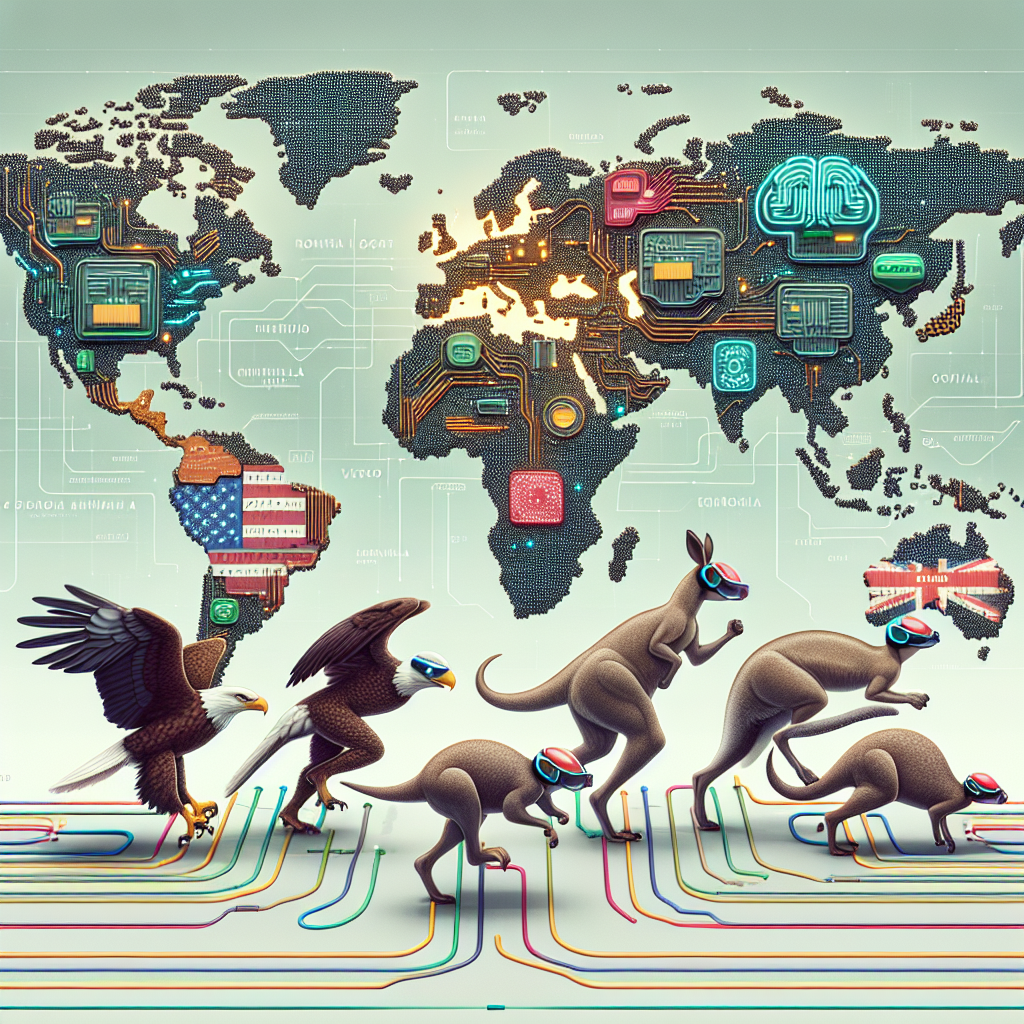The Race for AGI: Which Countries and Companies are Leading the Charge?
Artificial General Intelligence (AGI) is the Holy Grail of artificial intelligence research. AGI refers to a machine that can understand, learn, and apply knowledge in a way that is indistinguishable from human intelligence. While we are still some ways off from achieving true AGI, the race to develop this technology is heating up. Countries and companies around the world are pouring resources into research and development in the hopes of being the first to achieve this groundbreaking milestone. In this article, we will take a closer look at which countries and companies are leading the charge in the race for AGI.
Countries Leading the Charge
1. United States
The United States is a powerhouse when it comes to artificial intelligence research. The country is home to some of the world’s leading AI research institutions, such as MIT, Stanford, and Carnegie Mellon. Companies like Google, Facebook, and IBM are also heavily investing in AI research and development. The US government has also recognized the importance of AI and has launched initiatives like the National AI Initiative to support research in this field.
2. China
China has also emerged as a major player in the race for AGI. The country has made substantial investments in AI research and development, with companies like Baidu and Alibaba leading the charge. The Chinese government has also made AI a national priority and has set ambitious goals for becoming a global leader in this technology by 2030.
3. European Union
The European Union is also investing heavily in AI research and development. The EU has launched initiatives like the European AI Alliance to promote collaboration and innovation in the field of artificial intelligence. Countries like Germany, France, and the United Kingdom are leading the charge in AI research, with companies like Siemens, Airbus, and DeepMind making significant contributions to the field.
Companies Leading the Charge
1. Google
Google is one of the leading companies in the field of artificial intelligence. The company has made significant advancements in AI research, particularly in areas like natural language processing and computer vision. Google’s DeepMind subsidiary is also a major player in the field of AGI research, with projects like AlphaGo and AlphaZero showcasing the company’s capabilities in this area.
2. Facebook
Facebook is another company that is investing heavily in AI research and development. The social media giant has made significant advancements in areas like speech recognition and image recognition. Facebook’s AI research team is also working on projects like the FAIR program, which aims to develop AGI systems that can learn from limited amounts of data.
3. OpenAI
OpenAI is a non-profit research organization that is dedicated to developing artificial general intelligence in a way that benefits humanity. The organization was founded by Elon Musk and other tech luminaries, and has made significant contributions to the field of AI research. OpenAI’s GPT-3 language model is one of the most advanced AI systems in existence, showcasing the organization’s capabilities in the field of AGI.
FAQs
Q: How close are we to achieving AGI?
A: While we have made significant advancements in the field of artificial intelligence, true AGI is still a ways off. Experts estimate that we are at least a few decades away from achieving AGI, as the technology required to create a machine with human-level intelligence is still in its infancy.
Q: What are the potential benefits of AGI?
A: AGI has the potential to revolutionize a wide range of industries, from healthcare to finance to transportation. AGI systems could help doctors diagnose illnesses more accurately, help financial analysts make better investment decisions, and help self-driving cars navigate complex traffic patterns more effectively.
Q: What are the potential risks of AGI?
A: While AGI has the potential to bring about significant benefits, it also carries risks. One of the major concerns is that AGI systems could become autonomous and act in ways that are harmful to humans. Ensuring that AGI systems are aligned with human values and goals will be crucial in mitigating these risks.
In conclusion, the race for AGI is well underway, with countries and companies around the world vying to be the first to achieve this groundbreaking milestone. While we are still some ways off from achieving true AGI, the advancements that have been made in the field of artificial intelligence are truly impressive. As we continue to push the boundaries of what is possible with AI, it is important to consider the potential benefits and risks that AGI could bring. Only time will tell which country or company will emerge victorious in the race for AGI, but one thing is certain: the future of artificial intelligence is bright.

